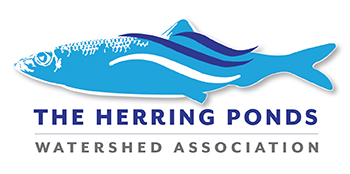Learn about Dangers to our Raptors
 By William Fitsgerald
By William Fitsgerald
Join Rescue Plymouth Wildlife’s Public Kick-off Meeting
10 APR | 6:30 PM EDT
Plymouth Public Library
Rescue Plymouth Wildlife (RPW) is a coalition of individuals and organizations committed to making Plymouth a healthier community for wildlife and people. Our priority is to raise awareness concerning the harmful impact of second-generation anticoagulant rodenticides (SGARs) on local wildlife.
Licensed pest management professionals place SGARs in bait stations targeting rats and other rodents. These poisons kill rodents by interfering with their blood’s ability to clot. The rodent consumes the bait, leaves the station, and then suffers over several days before succumbing to a lethal hemorrhage brought on by a cough, sneeze, or scratch. During this time, the rodent can become easy prey for hawks, owls, and other wildlife. As predators consume more poisoned rats and deliver them to their young, they can accumulate lethal levels of these poisons.
Unfortunately, scenarios like the one described above have already played out in communities across the Commonwealth. In 2023, Arlington lost the first female bald eagle to nest in the community for over 60 years due to SGAR exposure. While the impacts of SGARs on wildlife are hard to quantify, wildlife rehabilitators are sounding the alarm based on the sheer number of cases they’re seeing. For example, Zak Mertz, CEO of New England Wildlife Centers, shared that “close to 100% of hawks tested in Massachusetts have some level of exposure to SGARs.”
The EPA and others have known about the dangers of these poisons for quite some time. In 2015, the Agency banned the sale of SGARs to consumers. However, they are legally and widely used by licensed pest management professionals on public and private property throughout Massachusetts.
Ironically, by removing predators from the ecosystem, SGARs eliminate a natural check on rodent populations. This requires towns and cities to apply more rodenticides in a tragic negative feedback loop. In another heartbreaking example from Arlington, one poisoned rat wiped out an entire family of great-horned owls.
The only surviving member of the family (a juvenile) required 228 days of rehabilitation. During this time, the hungry owlet consumed over 1,300 mice. That’s nearly six mice a day! The amount of food these predators require is one of the key reasons why rodents are such prolific breeders. Had the owls not been killed by the rodenticides, the four of them would have consumed several thousand rodents in their territory before the juveniles set out to find a place of their own.
In Plymouth, we’re extremely lucky to have a rich natural heritage. For example, there are now several pairs of breeding bald eagles in our area, in addition to great horned owls, red-tailed hawks, northern harriers, foxes, coyotes, fisher cats, and other species. However, the use of SGARs in Plymouth jeopardizes the health of this natural heritage at a critical moment in our Town’s evolution.
Our ultimate goal is to work with the Town to develop a sustainable solution to the rodenticide issue. To do that, we need your help! To learn more about RPW, visit our website at www.rescueplymouthwildlife.org or email us at rescueplymouthwildlife@gmail.com.
Register for our kick-off meeting at Plymouth Public Library on 10 April using the QR code below. Thanks!


Comments
Learn about Dangers to our Raptors — No Comments
HTML tags allowed in your comment: <a href="" title=""> <abbr title=""> <acronym title=""> <b> <blockquote cite=""> <cite> <code> <del datetime=""> <em> <i> <q cite=""> <s> <strike> <strong>